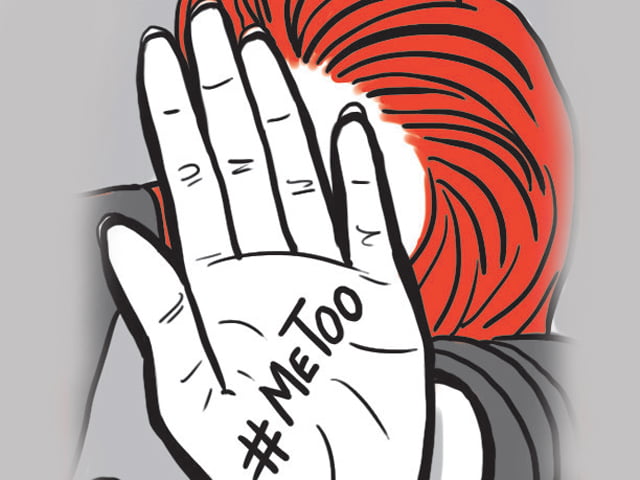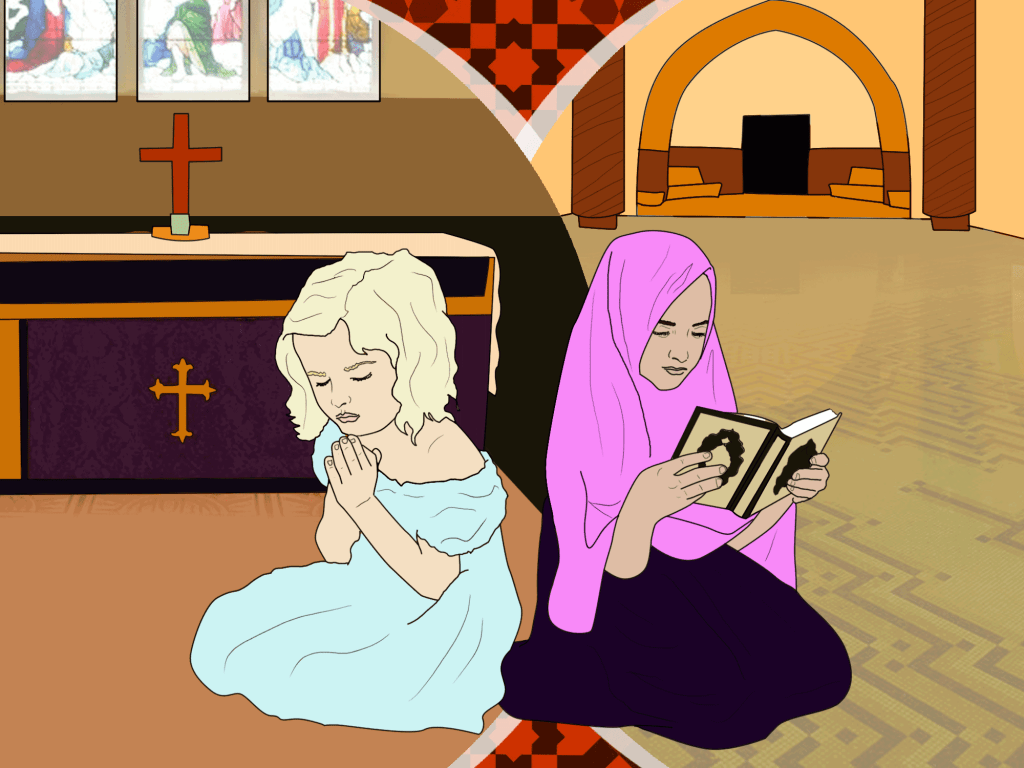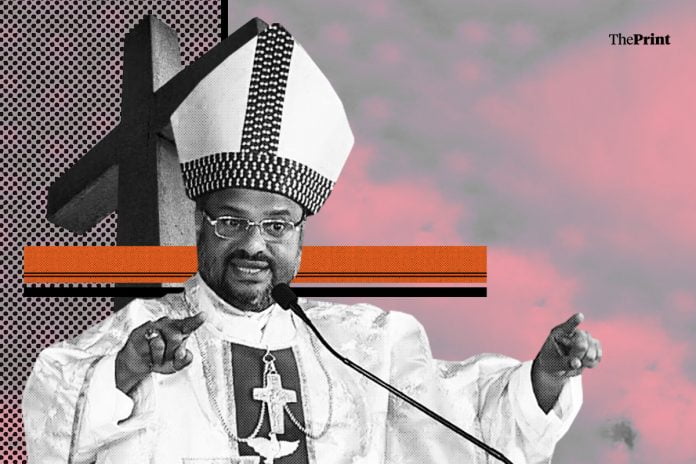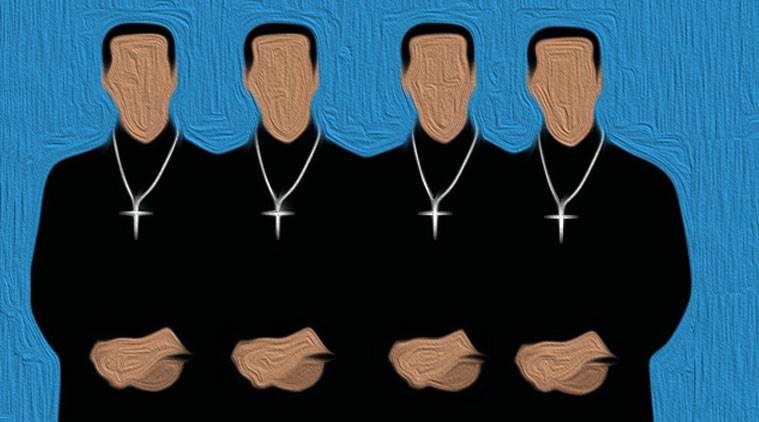TW: Sexual Harassment, Rape
The case of girls being raped by Church Fathers in their ‘medas’, the case of Imams sexually assaulting children and women and the rape of women by head priests in temples throws minuscule light upon the issue of women facing sexual assault at religious places in India. The lack of comprehensive data collation either by the NCRB or independent research organisations upon the statistics of women facing sexual assault at religious institutions makes it all the more difficult to ascertain the magnitude of harassment faced by the women at religious institutions.

But the constant and substantial number of news reports which come to light upon the instances wherein women devotees, volunteers and informal workers at religious places are sexually assaulted is fair enough to take into consideration the number of women who are affected by sexual harassment at religious institutions.
Victimising The Victim
The stigma and blame that is bestowed by the society upon the victims of sexual harassment by religious preachers and leaders are beyond any comprehension. The Indian society that is deeply religious by itself has historically been playing a lead role in securing the accused a barricade protection from the hands of law and justice.
The stigma and blame that is bestowed by the society upon the victims of sexual harassment by religious preachers and leaders are beyond any comprehension. The Indian society that is deeply religious by itself has historically been playing a lead role in securing the accused a barricade protection from the hands of law and justice.
Thus, the victims are not only denied justice but are brutally subjected to verbal rapes and media trials. They are mocked and are forced to live a life that isolates them from the mainstream society. The mental pressure and trauma that these victims undergo are neither considered by the justice delivery system nor by the law-making authorities. The agencies of the government not only fail to initiate any stringent actions against these holy leviathans but also take shelter under their lavish homagesto hide their dark histories from the mainstream society.
India has always witnessed an unholy alliance between politics and religion as both aid each other in maintaining a symbiotic relationship to preserve their thrones and grass root support. The real gravity of this issue can be understood by looking into the recent controversies in God’s Own Kerala surrounding Bishop Franco of the Catholic Church. Franco’s case is not the very first instance but it is the new born representative of the series of injustices which were done to the victims of similar cases. In the interesting case of Fr. Robin, a minor girl was preyed upon to satisfy the sexual appetite of the so called ‘God man’ and the girl’s father was forced to take up the paternity of the child that was born out of Reverend Father’s misdeeds.

The money, influence and societal pressure that was heinously used by the Church is clearly evident in this case. Justice is not just denied to the underprivileged Indians but is also denied to the foreigners who seek to explore the mystic Self Declared Oms of India. A book that gave a detailed picture of the devilish skills of a holy Mothers Love, was not allowed to hit the bookstores by the believers who worked tirelessly to protect the chastity of their Gods. Lastly, the increasing accusations of child abuse against Ustads of Madrasas are time and again comfortably ignored.
Sexual Harassment As A Form Of Discrimination
Sexual harassment at religious institutions is a very serious form of discrimination that is directed against women and children. There is nothing wrong to suspect these acts as those which are aimed to reaffirm the subordinate status of women and children in a patriarchal society. The investigation that was initiated by the Boston Globe’s Spotlight Team shows the systematic sexual abuse that is been carried out by religion. The preachers of religion who forget to follow the morals of criminal law in a constitutional democracy should be more seriously dealt with as they are the moral police for their community and hold a wide influence over the society.
There is nothing wrong to suspect these acts as those which are aimed to reaffirm the subordinate status of women and children in a patriarchal society.It would never be justified to believe that God will provide justice, when the representatives of God themselves are brutally abusing their powers to violate the integrity of women and children.
It would never be justified to believe that God will provide justice, when the representatives of God themselves are brutally abusing their powers to violate the integrity of women and children. Therefore, the onus is upon the State to provide justice to the victims. The process of delivering justice should also be designed in such a manner that it would also extend protection to the victims from blame and brasht from the sexual predators in the society. Considering the wide influence that religion has in the Indian society, it is necessary to ensure that cases against these holy fathers and mothers should not go unpunished. In order to ensure the same, there needs a special system that provides for swift and victim oriented justice delivery taking into consideration the social and institutional support that is enjoyed by these holy Leviathans.
Also read: Dissent Against Rape Prompted In The Expulsion Of Sister Lucy Kalappura
Law and Legislations
While the Indian Penal Code takes into cognisance matters pertaining to crimes committed against women at religious organisations, it still is a general law enacted in the year 1860 armed with traditional mode of prosecution which is painstakingly arduous with constant delays which in many ways is not victim friendly. Therefore, to dispel the hurdles created for the victims of sexual harassment of women at religious places due to the shortcomings of the criminal justice system, it calls in for a specialised law to deal with all cases pertaining to sexual harassment of women at religious places which is more nuanced in its approach against all kinds of sexual harassment at religious places and can render a speedy delivery of justice.
While the Indian Penal Code takes into cognisance into matters pertaining to crimes committed against women at religious organisations, it still is a general law enacted in the year 1860 armed with traditional mode of prosecution which is painstakingly arduous with constant delays which in many ways is not victim friendly.
This is precisely where the Sexual Harassment of Women at Workplace (Prevention, Prohibition and Redressal) Act, 2013, famously known as the Prevention of Sexual Harassment at Workplace Act or POSH Act fills in the gap, armed with the Vishaka Guidelines laid down by the Supreme Court. The relevant provision of the Prevention of Sexual Harassment at Workplace Act that extends the applicability of the legislation to take cognisance of matters pertaining to the sexual assault at religious places lies in the definition clause under Section 2(o) which provides a non-exhaustive meaning of ‘Workplace’.

The very fact that the definition of ‘Workplace’ was not given an exhaustive meaning implies that the intention of the parliament was not to make the scope and applicability of the Act as wide as possible. It is fascinating to note that under Section 2(o)(vi), a dwelling place or house has also been defined as workplace thereby giving a clear indication that the legislative intent was to make the applicability of the Act as wide as possible. The understanding of the legislative intent gets clearer when the definition of ‘Workplace’ is read with the preamble of the Act which aims to protect women against sexual harassment and secure their right to work with dignity, be it in any sector or forms of employment.
Also read: The Fallacy In Faith: Religious Leaders Propagating Misogyny
This view was reiterated by the honourable Supreme Court in the case of Saurabh Kumar Mallick v. Comptroller & Auditor General of India, wherein the Court held that, “A narrow and pedantic approach cannot be taken in defining the term ‘workplace’ by confining the meaning to the commonly understood expression ‘office’. It is imperative to take into consideration the recent trends.” Therefore, in the light of the aforesaid wide applicability of the Act, Supreme Court judgements and special character of this offence, the lawmakers should seriously think about expanding the applicability of the POSH Act, 2013 in order to provide justice to the victims of the sexual predators in the guise of God men.
Arjun Philip George (ajuphili@gmail.com) is LLM student at Central University of Kerala.
Jehosh Paul serves as Research and Outreach Aide at the Office of Ms. Apsara Reddy, National General Secretary, All India Mahila Congress. You can find him on Facebook, Twitter and LinkedIn.
Featured Image Source: The Indian Express



